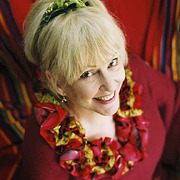Carmel Bird
Author of The Penguin Century of Australian Stories
About the Author
Carmel Bird is an Australian author and former teacher, born and raised in Launceston, Tasmania, in 1940. She taught fiction writing at the university level at Melbourne, Deakin, Latrobe, Monash, Swinburne and RMIT Universities. She has been writing since 1976 and is the author of novels, short show more story collections, nonfiction, children's books, and has edited anthologies. Dimitra was her first collection and was published in 1981 and My Hearts are Your Hearts was published in 2015. Cherry Ripe was her first novel, published in 1985, and Family Skeleton, published in 2016, is her most recent. Dear Writer, published in 1988, was her first nonfiction book and Fair Game was published in 2015. She wrote two children's books, The Mouth (1996) and The Cassowary's Quiz (1998). The Writing on the Wall: Collection of Poetry and Prose by Women (1985) was her first work as an editor, and The Penguin Century of Australian Stories was published in 2000. She has written book reviews for the Australian Book Review. Her awards include winning the Philip Hodgins Memorial Medal at the Mildura Writer's Festival (2001) and in 2016, winning the Patrick White Literary Award. (Bowker Author Biography) show less
Image credit: Samantha Everton
Series
Works by Carmel Bird
A Telephone Call for Genevieve Snow 2 copies
AUSTRALIAN STORIES PA 1 copy
Conservatory 1 copy
Cave Amantem 1 copy
Associated Works
She's Fantastical: The First Anthology of Australian Women's Speculative Fiction, Magical Realism and Fantasy (1995) — Contributor — 34 copies, 1 review
Regarding Jane Eyre: Writers Respond to Charlotte Bronte's Jane Eyre (1997) — Contributor — 17 copies
Goodbye to Romance: Stories by New Zealand and Australian Women Writers, 1930-1988 (1989) — Contributor — 10 copies
Tagged
Common Knowledge
- Canonical name
- Bird, Carmel
- Birthdate
- 1940-08-30
- Gender
- female
- Nationality
- Australia
- Birthplace
- Launceston, Tasmania, Australia
- Places of residence
- Melbourne, Victoria, Australia
Tasmania, Australia - Education
- University of Tasmania
- Occupations
- novelist
short-story writer
columnist
editor
creative writing teacher - Agent
- Jenny Darling and Associates
Members
Reviews
Awards
You May Also Like
Associated Authors
Statistics
- Works
- 41
- Also by
- 12
- Members
- 665
- Popularity
- #37,923
- Rating
- 3.4
- Reviews
- 13
- ISBNs
- 89
- Languages
- 1















That is to say,, it's probably perfect any time, but when the ability to concentrate, read and remember is a bit compromised, a book like this is ideal. It doesn't have a plot to be followed, or characters to connect, or a narrative voice to interrogate for reliability. It can be read in short, unconnected bursts of energy for the sheer delight of Carmel Bird's reminiscences and the pleasure of the book's exquisite design.
It's ironic that I'm reading the book with a post-covid brain. Telltale has its origins in the great Covid enchantment — enforced isolation during the pandemic — when the books in the author's own personal library became the catalyst for this memoir. As Australian readers will know, we had strict and lengthy lockdowns in my state, widely supported because we evaded the worst of the virus when it was at its most virulent and the previous federal government had failed to secure adequate vaccination supplies. I'm reading the book now in the wake of being very unwell with the latest variant, but I was unlikely to die from Covid because I've had four vaccinations and the latest antivirals. But the steady rate of deaths each week means that the sense of dread is not entirely vanquished. (And we are not yet allowed out of the house, by law.)
Carmel Bird lives outside Melbourne in a small regional city and here she captures the sense of foreboding that was widely shared:
If you've read any of Carmel Bird's novels, you'll recognise the macabre imagery and the playful gothic style...
I have described Telltale as a memoir, but it's more than that.
To read the rest of my review please visit https://anzlitlovers.com/2022/06/04/telltale-reading-writing-remembering-by-carm...… (more)